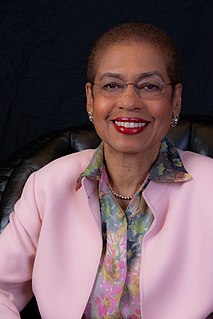A Quote by Gabriel Garcia Marquez
To oppression, plundering and abandonment, we respond with life.
Quote Topics
Related Quotes
Many people assert that this abandonment of the god hypothesis means the abandonment of all religion and all moral sanctions. This is simply not true. But it does mean, once our relief at jettisoning an outdated piece of ideological furniture is over, that we must construct something to take its place.
"Oppression" or "systems of oppression" operate as a shorthand terms in much writing and speaking so that we do not have to list all these systems of meaning and control each time (i.e. racism, ableism, xenophobia, etc.). I needed a term like that, but "oppression" implies a kind of top-down understanding of power that is at odds with the Foucaultian model I rely on in my work.
The great religious ages were notable for their indifference to human rights... not only for acquiescence in poverty, inequality, exploitation and oppression, but also for enthusiastic justifications for slavery, persecution, abandonment of small children, torture, and genocide... Moreover, religion enshrined hierarchy, authority, and inequality... It was the age of equality that brought about the disappearance of such religious appurtenances as the auto-da-fe and burning at the stake.
Her mother died at the age of 29, essentially turning her face to the wall and deciding to die. And so we can only imagine the agony she felt. And Eleanor Roosevelt really wanted to make her mother happier, and - and to make her live, you know, make her want to live. And there's something about, you know, when your mother dies, this sense of abandonment. I think Eleanor Roosevelt had a lifelong fear of abandonment and sense of abandonment after her parents' death.






































